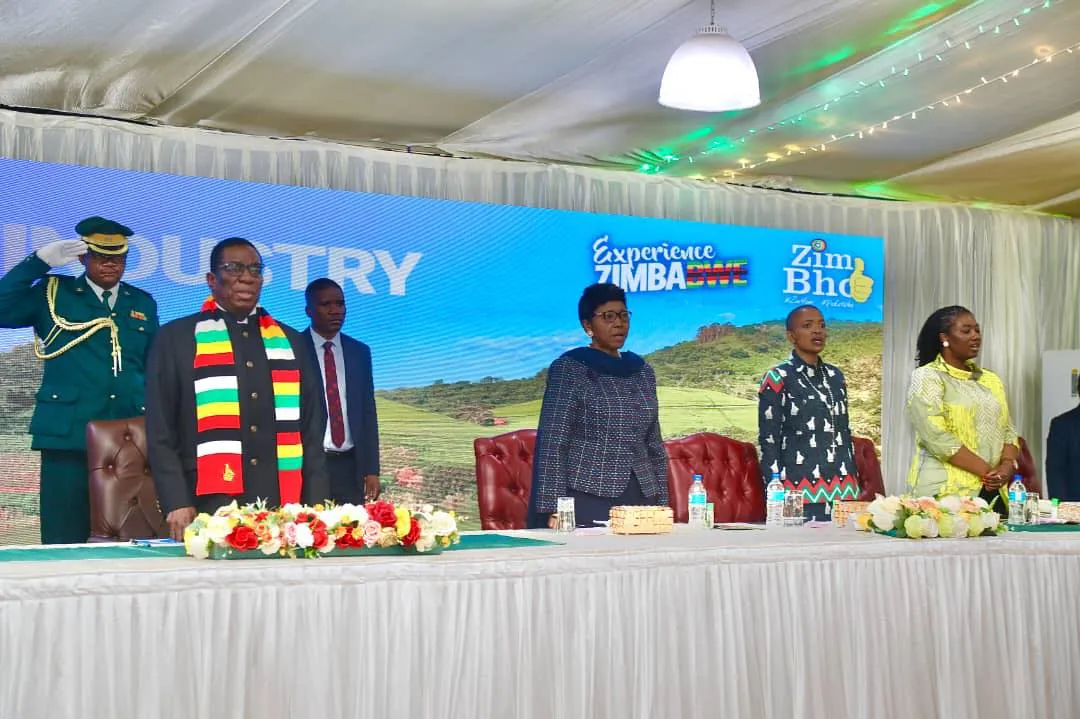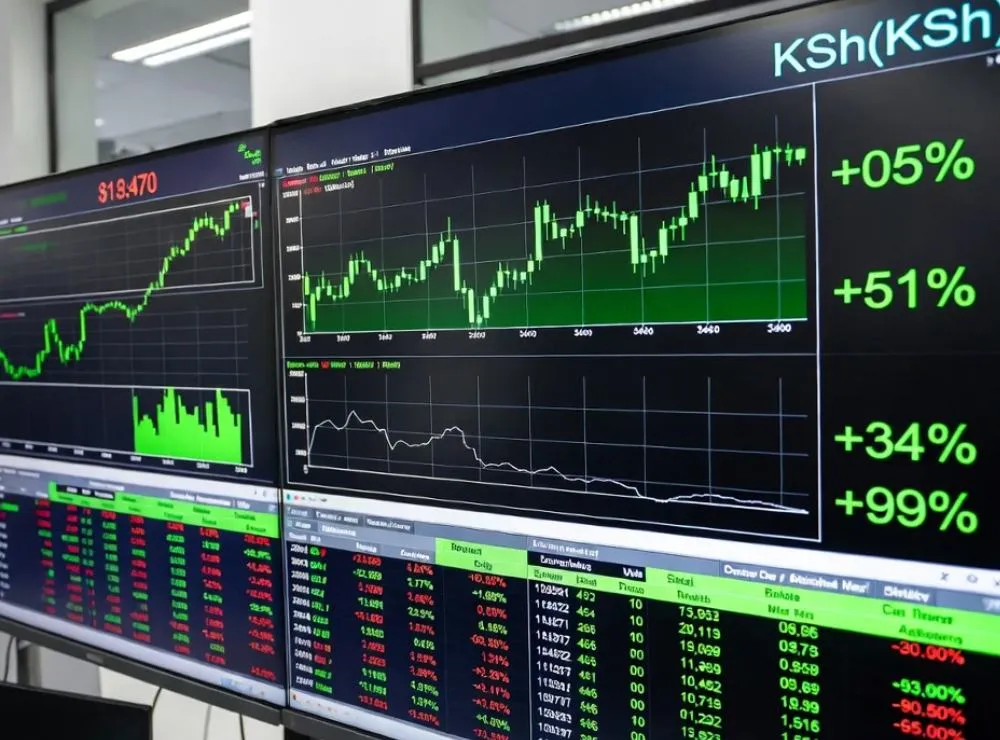The financial landscape in South Africa is set to undergo a significant transformation, with major changes in the country’s interbank lending rates. One of the key shifts involves the Johannesburg Interbank Average Rate (JIBAR), which has long served as a benchmark for unsecured interbank lending but will be phased out by 2026. This transition will pave the way for the introduction of the South African Rand Overnight Index Average (ZARONIA), a more robust and reliable benchmark.
The shift from JIBAR to ZARONIA is part of a broader effort to enhance the credibility and transparency of interest rate benchmarks, reflecting global trends in financial markets. As this transition unfolds, banks, corporations, and other financial institutions in South Africa will need to adapt their strategies to the new benchmark system, which will ultimately influence a wide range of financial contracts, including loans, derivatives, and other interest rate-linked products.
What is JIBAR?
The Johannesburg Interbank Average Rate (JIBAR) has been the standard for unsecured interbank lending in South Africa. Established in the 1990s, it became a crucial reference point for the pricing of loans, bonds, derivatives, and other financial products. JIBAR is calculated based on the indicative borrowing and lending rates submitted by a panel of selected banks, which predict future interest rates for lending unsecured funds over a specified period, typically three months, six months, or twelve months.
However, JIBAR has faced criticism over the years due to its reliance on expert judgment and projections rather than actual market transactions. This has raised concerns about its transparency and reliability, especially when compared to benchmarks grounded in real financial activities. In light of these concerns, the need for a more robust and transparent benchmark has become evident, prompting the shift toward ZARONIA.
Enter ZARONIA: A More Reliable Benchmark
ZARONIA, which stands for the South African Rand Overnight Index Average, has been selected as the new Alternative Reference Rate (ARR) by the Market Practitioner’s Group, an industry body comprising key stakeholders in the South African financial sector. ZARONIA is calculated using historical data from actual overnight transactions in the South African rand money markets, making it a more reliable and transparent benchmark compared to JIBAR.
Unlike JIBAR, which is forward-looking and based on expert judgment, ZARONIA reflects real transactions between banks. It measures the interest rates that banks actually pay for overnight funding, providing a more accurate and credible reflection of market conditions. This shift from a projection-based rate to a transaction-based rate aligns with global trends in benchmark reforms, where countries are increasingly adopting benchmarks grounded in observable market data.
Kim Robertson of RMB (Rand Merchant Bank) has been a vocal advocate of this transition. In November 2023, she confirmed that the South African Reserve Bank (SARB) had given its mandate for the adoption of ZARONIA, and market participants could begin using it as the new benchmark. According to Robertson, this move is a crucial step toward improving the transparency and reliability of interest rate benchmarks in South Africa.
Why the Transition to ZARONIA?
The decision to phase out JIBAR and replace it with ZARONIA is part of a broader international trend toward reforming interest rate benchmarks. In recent years, concerns about the integrity of traditional benchmarks like JIBAR have emerged, driven in part by the manipulation scandals surrounding the London Interbank Offered Rate (LIBOR) in global markets. LIBOR, which had served as a key benchmark for international financial transactions, was found to be vulnerable to manipulation by participating banks, prompting widespread reforms.
In response, regulators around the world, including those in South Africa, began looking for alternatives to traditional benchmarks that were more transparent and less susceptible to manipulation. ZARONIA was identified as a suitable replacement for JIBAR due to its reliance on actual market transactions rather than estimates. This shift aims to ensure that benchmarks reflect true market conditions, enhancing the credibility and stability of the financial system.
As wholesale banking caters primarily to large corporations, typical retail consumers are unlikely to be directly affected by the transition to ZARONIA. However, for businesses with financial contracts linked to JIBAR, such as loans, derivatives, or other floating-rate instruments, the transition will have significant implications.
Implications for Corporations and Financial Institutions
The transition from JIBAR to ZARONIA is not just a technical adjustment—it carries substantial implications for corporations and financial institutions across South Africa. Robertson has emphasized that companies with floating-rate loans, credit facilities, deposits, or derivatives linked to JIBAR need to start preparing for the transition. This preparation involves reviewing financial contracts to assess the potential impact of the new benchmark and determining how the shift might affect their business operations.
“Companies need to start learning about ZARONIA and how it will work for their transactions,” Robertson stated, highlighting the importance of education and awareness for market participants. Corporations are advised to begin revising their contracts and making necessary adjustments ahead of JIBAR’s cessation in 2026.
RMB, along with other major financial institutions, is actively assessing how the transition to ZARONIA will impact JIBAR-linked transactions and products. This includes reviewing existing products, developing new ones that are compatible with ZARONIA, and ensuring that clients are well-informed about the upcoming changes.
Robertson also pointed out that RMB is benchmarking its transition efforts against global peers to ensure a smooth and efficient transition process. The transition to new benchmarks is a complex and carefully managed process, requiring coordination between banks, corporations, regulators, and other stakeholders.
The Role of SARB in the Transition
The South African Reserve Bank (SARB) plays a crucial role in overseeing the transition from JIBAR to ZARONIA. SARB’s involvement ensures that the new benchmark aligns with global best practices and meets the needs of the South African financial market. SARB has been working closely with the Market Practitioner’s Group and other key stakeholders to ensure that the transition is smooth and that ZARONIA becomes a trusted and reliable benchmark for financial transactions in the country.
SARB’s commitment to the transition is part of a broader effort to enhance the stability and integrity of South Africa’s financial system. By adopting a benchmark that is based on actual market transactions, SARB aims to strengthen the transparency and credibility of interest rate benchmarks, reducing the risk of manipulation and ensuring that rates accurately reflect market conditions.
Global Benchmark Reforms: The Bigger Picture
The transition from JIBAR to ZARONIA in South Africa is part of a global movement toward reforming interest rate benchmarks. Following the LIBOR scandal, regulators around the world began replacing traditional benchmarks with new ones that are more transparent and less susceptible to manipulation.
In the United States, for example, the Secured Overnight Financing Rate (SOFR) has replaced LIBOR as the key benchmark for dollar-denominated financial transactions. In the United Kingdom, the Sterling Overnight Index Average (SONIA) has taken on a similar role. These new benchmarks, like ZARONIA, are based on actual market transactions, providing a more reliable reflection of market conditions.
The shift toward transaction-based benchmarks is expected to improve the stability and transparency of financial markets globally. However, the transition process is complex, requiring careful planning and coordination between regulators, financial institutions, and market participants.
Preparing for the Future
As South Africa prepares for the transition from JIBAR to ZARONIA, market participants need to stay informed and proactive. Corporations, financial institutions, and other stakeholders should begin reviewing their contracts, assessing the potential impact of the new benchmark, and making necessary adjustments to ensure a smooth transition.
The adoption of ZARONIA represents a significant step forward for South Africa’s financial system, aligning the country with global best practices in benchmark reform. By embracing a benchmark that is based on actual market transactions, South Africa is enhancing the credibility and transparency of its financial markets, ultimately contributing to greater stability and trust in the financial system.
In the coming months, as ZARONIA is phased in and JIBAR is gradually phased out, market participants will need to remain vigilant and adaptable. With the support of SARB and the Market Practitioner’s Group, South Africa is well-positioned to navigate this transition and emerge with a stronger, more reliable benchmark system that benefits the entire financial ecosystem.
Ready to take your career to the next level? Join our dynamic courses: ACCA, HESI A2, and ATI TEAS 7! 🌟 Dive into a world of opportunities and empower yourself for success. Explore more at Serrari Ed and start your exciting journey today! ✨
Photo source: Google
By: Montel Kamau
Serrari Financial Analyst
25th October, 2024
Article, Financial and News Disclaimer
The Value of a Financial Advisor
While this article offers valuable insights, it is essential to recognize that personal finance can be highly complex and unique to each individual. A financial advisor provides professional expertise and personalized guidance to help you make well-informed decisions tailored to your specific circumstances and goals.
Beyond offering knowledge, a financial advisor serves as a trusted partner to help you stay disciplined, avoid common pitfalls, and remain focused on your long-term objectives. Their perspective and experience can complement your own efforts, enhancing your financial well-being and ensuring a more confident approach to managing your finances.
Disclaimer: This article is for informational purposes only and does not constitute financial advice. Readers are encouraged to consult a licensed financial advisor to obtain guidance specific to their financial situation.
Article and News Disclaimer
The information provided on www.serrarigroup.com is for general informational purposes only. While we strive to keep the information up to date and accurate, we make no representations or warranties of any kind, express or implied, about the completeness, accuracy, reliability, suitability, or availability with respect to the website or the information, products, services, or related graphics contained on the website for any purpose. Any reliance you place on such information is therefore strictly at your own risk.
www.serrarigroup.com is not responsible for any errors or omissions, or for the results obtained from the use of this information. All information on the website is provided on an as-is basis, with no guarantee of completeness, accuracy, timeliness, or of the results obtained from the use of this information, and without warranty of any kind, express or implied, including but not limited to warranties of performance, merchantability, and fitness for a particular purpose.
In no event will www.serrarigroup.com be liable to you or anyone else for any decision made or action taken in reliance on the information provided on the website or for any consequential, special, or similar damages, even if advised of the possibility of such damages.
The articles, news, and information presented on www.serrarigroup.com reflect the opinions of the respective authors and contributors and do not necessarily represent the views of the website or its management. Any views or opinions expressed are solely those of the individual authors and do not represent the website's views or opinions as a whole.
The content on www.serrarigroup.com may include links to external websites, which are provided for convenience and informational purposes only. We have no control over the nature, content, and availability of those sites. The inclusion of any links does not necessarily imply a recommendation or endorsement of the views expressed within them.
Every effort is made to keep the website up and running smoothly. However, www.serrarigroup.com takes no responsibility for, and will not be liable for, the website being temporarily unavailable due to technical issues beyond our control.
Please note that laws, regulations, and information can change rapidly, and we advise you to conduct further research and seek professional advice when necessary.
By using www.serrarigroup.com, you agree to this disclaimer and its terms. If you do not agree with this disclaimer, please do not use the website.
www.serrarigroup.com, reserves the right to update, modify, or remove any part of this disclaimer without prior notice. It is your responsibility to review this disclaimer periodically for changes.
Serrari Group 2025
















